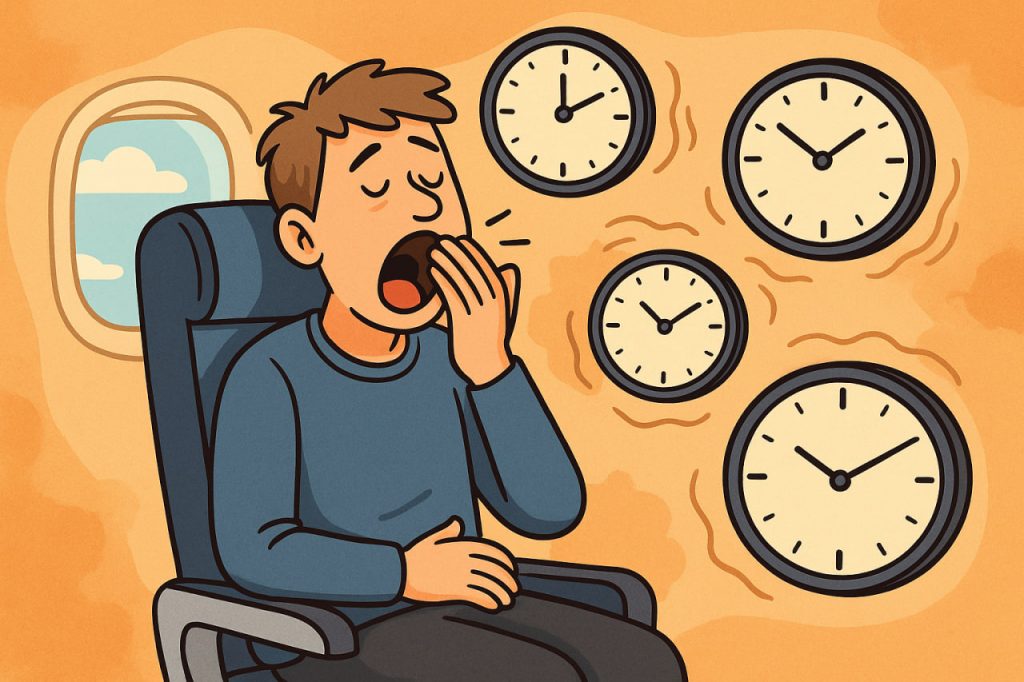Traveling across time zones can be exciting, but it also disrupts the body’s natural rhythms. This condition, commonly known as jet lag, happens because the body’s internal clock (circadian rhythm) becomes misaligned with the new local time. The result can be fatigue, poor concentration, mood changes, and even digestive issues. Understanding how time zone changes influence health helps in managing and reducing their negative effects.
Circadian Rhythm and Sleep
The human body runs on a circadian rhythm, a 24-hour internal cycle that regulates sleep, hormone release, and metabolism. When you quickly move across time zones, your body still follows the old schedule. This mismatch makes it hard to fall asleep, stay awake during the day, or feel rested. Disrupted sleep is one of the main health effects of time zone shifts.
Cognitive and Emotional Effects
Changing time zones often leads to mental fog, poor memory, and lack of focus. Mood swings, irritability, and mild anxiety are also common, as the brain struggles to adapt. These changes are especially noticeable in people who must work or perform tasks soon after arrival, such as athletes, pilots, or business travelers.
Digestive System Impact
Meals timed according to the new time zone may not align with your body’s rhythm. This can lead to loss of appetite, indigestion, or irregular bowel movements. Over time, repeated disruptions may strain metabolism and contribute to weight changes.
Hormonal Balance
Key hormones such as melatonin (sleep regulator) and cortisol (stress hormone) are strongly tied to circadian rhythms. Time zone shifts disrupt their balance, making it harder to sleep or feel alert. Chronic disruption may weaken the immune system and reduce overall resilience.
Long-Term Effects
Occasional travel-related jet lag is temporary, but people who frequently cross time zones, such as flight attendants or international workers, may face long-term consequences. These include persistent sleep disorders, weakened immunity, cardiovascular risks, and even higher chances of developing metabolic conditions.
How to Minimize the Effects
- Gradually adjust sleep patterns a few days before traveling.
- Spend time in natural sunlight after arrival to reset the circadian rhythm.
- Stay hydrated and avoid alcohol or heavy meals during flights.
- Use short naps instead of long daytime sleep to adapt faster.
- Seek medical advice if chronic issues with time zone changes persist.
Conclusion
Time zone changes affect health by disrupting circadian rhythms, sleep, digestion, and hormonal balance. While jet lag is usually temporary, frequent disruptions can harm long-term well-being. Healthy habits, light exposure, and gradual adaptation help the body recover and adjust more quickly.
Glossary
- Jet lag – temporary sleep disorder caused by crossing time zones.
- Circadian rhythm – the body’s natural 24-hour biological clock.
- Melatonin – a hormone that regulates sleep.
- Cortisol – the stress hormone that helps control energy and alertness.
- Metabolism – the body’s process of converting food into energy.


